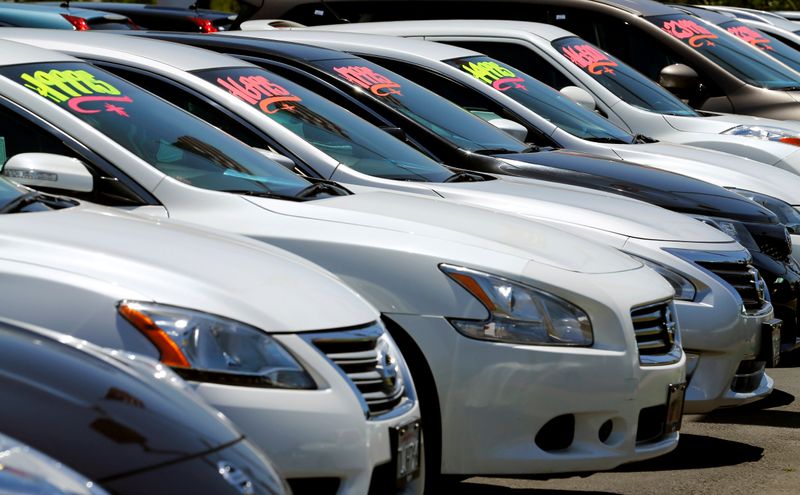This post was originally published on this site
https://i-invdn-com.akamaized.net/trkd-images/LYNXMPEG2F23P_L.jpg
By Tina Bellon
(Reuters) – Several automakers on Monday said U.S. buyers of new vehicles will have the option to defer their payments and customers with existing car loans could ask for payment rescheduling if impacted by shutdowns due to the spread of coronavirus.
The move is also aimed at boosting new car sales during a time of uncertainty for dealerships, as an unprecedented wave of closures and restrictions is prompting millions of U.S. workers and students to stay home to slow the spread of the outbreak.
More than 4,100 people in the United States have been confirmed as being infected with the fast-spreading virus.
Ford Motor Co (N:) on Monday said its credit unit is offering customers purchasing new vehicles the option to delay their first payment by 90 days. A U.S. spokesman for Nissan Motor Co Ltd (T:) said the automaker will launch a similar program.
Hyundai Motor Co (KS:) on Friday said it would defer payments for select new cars by 90 days and provide up to six months of payment relief for customers who lose their job.
Ford, Nissan, General Motors Co (N:) and Toyota Motor Corp (T:) also said they will provide payment relief options to customers affected by the virus, including extensions and deferred lease payments.
“We are working with customers on a case-by-case basis regarding payment deferrals and waiving late fees,” a GM spokesman said.
U.S. auto loans have been climbing at a steady rate since 2011 and were up $16 billion in the fourth quarter of 2019 to $1.33 trillion nationwide, according to data by the New York Federal Reserve.
More than 7 million Americans are already 90 or more days behind on their car loans and serious delinquency rates among borrowers with the lowest credit scores have by far seen the fastest acceleration.
For America’s working poor, having a car is often an essential ingredient for keeping a job and forced closures of restaurants and other businesses could exacerbate the situation.
So far, automakers and their suppliers have avoided production shutdowns in the United States due to parts already en route, or resorting to air shipments and different plants.
But analysts are reducing their 2020 sales forecast for the U.S. market due to the outbreak. Morgan Stanley (NYSE:) analyst Adam Jonas said in a research note last week he expects “demand shock” to send U.S. auto sales down 9% this year. Before the outbreak, he had expected a decline of 1% to 2%.
Fusion Media or anyone involved with Fusion Media will not accept any liability for loss or damage as a result of reliance on the information including data, quotes, charts and buy/sell signals contained within this website. Please be fully informed regarding the risks and costs associated with trading the financial markets, it is one of the riskiest investment forms possible.

